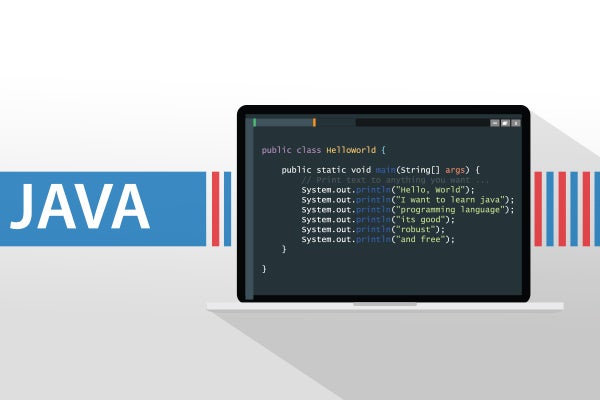
Oracle Java SE 8 Commercial License Now Requires Paid Subscription
Java SE 8 is a popular distribution. In this blog, we break down some changes in commercial licensing for Oracle Java SE 8, which now requires a paid subscription.
What Is Oracle Java SE 8?
Java SE 8 (Java Standard Edition 8) is a Java Development Kit (JDK) offered by Oracle.
Java SE 8 was released in March 2014 for free. But there have been some changes to Oracle Java SE 8 in recent years — in particular, to licensing and support.
Related reading: what's the future of Java?
Back to topOracle Java SE 8 Is No Longer Free
As of January 2019, businesses need to purchase a commercial license from Oracle in order to receive software updates.
Back to topForrester Report: Java Support
Oracle Java SE 8 isn't your only option. A popular alternative — OpenJDK — has emerged. Get this Forrester report to learn your options for Java support.
What Oracle Java SE 8's Paid Subscription Means For You
We reached out to Java experts to get their thoughts on Oracle Java SE 8's licensing change. Here’s the question we posed to each expert:
Oracle now requires a paid subscription for businesses to continue getting updates to Java SE 8. What are your thoughts on this decision by Oracle?
Here's what they said.
Lack of Clarity in Oracle Java SE 8 Change

Oracle is perfectly entitled to offer support licenses, and this is a business model that they have been doing for many years. What they failed to do was be clear enough about the change. Rather than changing the license of the main download of Java, they should have introduced a new "product" (e.g., Oracle Java Enterprise). This would have avoided the confusion, as few would mistakenly download a product with the name "enterprise" and expect it to be zero-cost.
Stephen Colebourne: Creator, Joda Projects
Stephen Colebourne (@jodastephen) is the creator of Joda projects.
Oracle's Java SE 8 Paid Subscription Isn't New

This has been the approach for many years. Once the new versions come out, the old ones are available on a paid subscription. It is nothing new. Fortunately, we have lots of players in the OpenJDK market, so companies have a choice of which one to use.
Dr. Heinz M. Kabutz from JavaSpecialists.eu
Dr. Heinz Kabutz (@heinzkabutz) is a Java expert with JavaSpecialists.eu.
Questions on Oracle's Java Support Model

It is not surprising that Oracle wishes to monetize its investment in Java. What puzzles me is why Oracle is not generating sufficient revenue from Java by providing support similar to other companies, such as Red Hat or Pivotal. That, of course, could be why I’m a teacher and not a CEO.
Ken Fogel, Java Champion and CS Teacher
Ken Fogel (@omniprof) is a Java Champion and Computer Science teacher at Dawson College.
Java SE 8 Is Still Free; Support Comes at a Cost
It is what it is. Oracle Java (and in a more general sense, the JVM) is the workhorse of enterprise software. Oracle has poured a lot of money into Java over the years and the fact of the matter is, the vast majority of users pay them nothing, enjoying bug fixes and security updates on a regular and long term basis.
Oracle likes to make money (can't fault them) and this decision has pushed a portion of their users into paid support and pushed the rest of the moochers out to open source pasture. I get it — I've mooched off of Oracle and Sun before them, for years as a JVM developer. Honestly, I think Oracle has gone about this in the best way they probably could have.

They retain the influence over the platform, but the code itself is open sourced and maintained by a very large group of open source contributors backed by some very large companies like Red Hat and Amazon, who are too invested in Java to not help.
It's caused some growing pains in the OpenJDK space, a lot of questions about just what exactly "Java" is and some hand wringing regarding the future of the JVM, but at the end of the day, Java is still free and Oracle has enabled the Java community to pick up free support where they leave off.
Brad Wood, lead architect and developer advocate
Brad Wood (@bdw429s) is Lead Architect and Developer Advocate at Ortus Solutions, Corp.
End of Public Updates Is Typical for Oracle Java SE

This is not really a change in my view. End of public updates was planned and known for quite some time. Also, the end of public updates has been normal and expected in the Java world and this has happened for all versions since 1.4. For example, 7 was released in 2011 and its public updates ended in 2015, one year after the release of 8.
Giorgos Gaganis: software engineer, blogger
Giorgos Gaganis (@ggaganis) is a software engineer and blogger who’s based in Greece.
Oracle Java SE 8 Got 5 Years of Support

Oracle's JDK 8 got five years of free support, which is ample. And while it's gratis, it's certainly not costless, so it makes sense for Oracle to monetize long-term support. Does it make sense for the rest of the Java community? That's not easy to answer and I think only time will tell. An important factor is whether the community is willing to pay (monthly $US 25 per server processor or $US 2.50 per desktop user) for what they rely on. Personally, I prefer Java's guardian to earn good money from it as opposed to looking for ways to reduce costs (e.g., by curbing further development).
Nicolai Parlog: Java developer and author
Nicolai Parlog (@nipafx) is a Java developer, blogger, author, and trainer.
Prepare for a Rise in Non-Oracle Java
Although it could be argued that this is “business as usual” for Oracle, there is no question that this move will be highly disruptive to both commercial and free segments of the software industry at large. Java still powers a tremendous amount of the landscape, and continues to be the most prevalent language in enterprise software. A majority of open source projects are written in Java (though newer contenders like Node.js and Go are on a sharp rise), and this move will further distance Oracle from the ever-expanding world of open software.
Honestly, I see this move as very short-sighted on Oracle’s part. Though it will provide an immediate cash-grab from customers who are too risk-averse to move to a GPL-protected Java variant, ultimately it will accelerate the adoption of non-Oracle Java. OpenJDK was already well on the rise before this move because of its accessibility. In an infrastructure landscape that is becoming more turnkey by the day and with cloud-native and container-based patterns becoming the new normal, the free and uninhibited distribution of software is increasingly important.

Apart from having no license cost, software that can be pulled from public repositories in an automated way or distributed freely through package and container repositories just makes more sense for the way modern deployments are managed. By adding another barrier to the deployment of Oracle Java, Oracle has taken a giant step *away* from industry-leading patterns. I believe history will show that this move is ultimately detrimental to Oracle and its place in the new software landscape.
Justin Reock: Chief Architect at OpenLogic
Justin Reock (@jreock) is a free software evangelist and the Chief Architect for OpenLogic. He resides in Asheville, NC.
Back to topSupport For Java SE 8 — And Beyond
Oracle isn't your only option for Java SE 8 support. You can also get support from OpenLogic for Java SE 8, from Oracle or with OpenJDK.
Our experts can provide support for whatever distribution of Java you're running. And we can help you migrate when needed.
When you rely on OpenLogic's Java support, you get:
- Cost-savings.
- Support for all Java distributions.
- Long-term support for Oracle Java SE 8 or OpenJDK Java 8.
- Security patches on-demand.
- Multi-platform support.
- Guidance beyond Java support.
We also provide OpenJDK downloads, with free distributions of OpenJDK 8 and OpenJDK 11.
Learn how we can help you support Java in your environment, whether it's Oracle Java SE 8 or another distribution. Talk to an expert today to find out.
Related Content:
- Oracle JDK vs. OpenJDK
- Tips for an Oracle JDK to OpenJDK Migration
- Why Pay For OpenJDK Support
- Introducing Java 19 Features